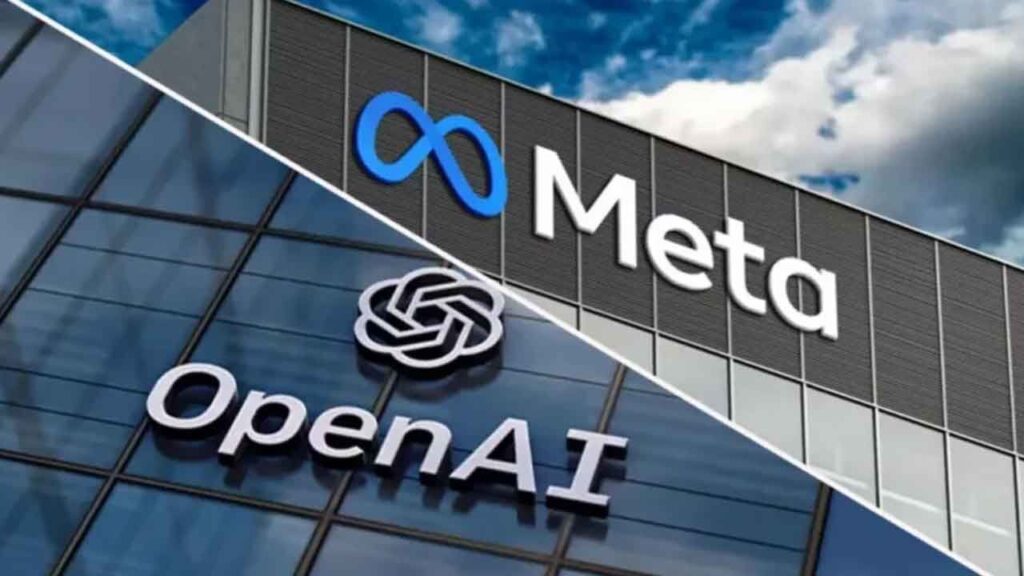In a significant development for the artificial intelligence landscape, Meta has successfully recruited renowned researcher Trapit Bansal from OpenAI. This strategic hire is part of Meta’s new initiative to bolster its capabilities in AI reasoning models through the formation of its AI superintelligence unit. The news, initially reported by TechCrunch and confirmed by an OpenAI spokesperson, marks a pivotal step for Meta as it intensifies its focus on developing advanced AI technologies.
Understanding the Significance of the Hire
Trapit Bansal’s departure from OpenAI, officially noted on his LinkedIn page in June 2025, has stirred considerable attention within the tech community. Known for his influential work on AI reasoning systems, particularly as a foundational contributor to OpenAI’s “o1” reasoning model and for launching their reinforcement learning efforts, Bansal’s expertise is expected to significantly enhance Meta’s research and development efforts in this domain.
Meta’s newly formed AI superintelligence unit, personally spearheaded by CEO Mark Zuckerberg, aims to explore cutting-edge AI technologies, focusing on creating systems that can reason and learn more like humans, with the ultimate goal of achieving “superintelligence” that surpasses human cognitive capabilities. This initiative aligns with the broader trend in the tech industry where companies are racing to develop AI that not only performs specific tasks but also understands context and nuances much like a human brain.
The Landscape of AI Reasoning
AI reasoning models are crucial for creating systems that can make decisions based on incomplete or ambiguous information. This capability is fundamental for applications ranging from autonomous vehicles to advanced personal assistants, and for solving complex problems requiring multi-step deduction and planning. With Bansal on board, Meta aims to push the boundaries of what AI can achieve in terms of reasoning and decision-making, competing with industry-leading reasoning models like OpenAI’s o3 and DeepSeek’s R1.
According to industry experts, the need for robust AI reasoning capabilities is at an all-time high. A report from Gartner highlights that over 70% of organizations are planning to integrate AI systems that can reason and learn from data over the next five years. This statistic underscores the competitive edge that firms like Meta could gain through strategic hires like Bansal.
Meta’s AI Superintelligence Unit: Goals and Vision
The establishment of the AI superintelligence unit within Meta reflects the company’s ambitious vision to lead in AI innovation. CEO Mark Zuckerberg has consistently emphasized the importance of AI in shaping the future of the company. In a recent statement, Zuckerberg noted, “Our goal is to build technologies that empower people and improve their lives through AI. Hiring top talent like Trapit Bansal is a vital step in achieving this mission.”
Meta’s focus on AI reasoning models will not only enhance its product offerings but also position the company as a leader in ethical AI development. The integration of advanced reasoning capabilities aims to address concerns around AI bias and decision-making transparency, ensuring that AI systems operate fairly and responsibly. Meta is also making significant investments in infrastructure, including a reported .3 billion stake in Scale AI, to support this ambitious project.
The Impact on the Tech Industry
Bansal’s transition from OpenAI to Meta is indicative of a larger trend in the tech industry, where top researchers are increasingly moving between major companies. This “talent poaching” often involves lucrative offers, with some reaching nine-figure compensation packages, and leads to a cross-pollination of ideas and innovation, fostering a competitive environment that accelerates advancements in AI technology. Other former OpenAI researchers, including Lucas Beyer, Alexander Kolesnikov, and Xiaohua Zhai, have also recently joined Meta.
Furthermore, Bansal’s expertise could catalyze collaborations within Meta, leveraging insights from various sectors including social media, virtual reality, and augmented reality. As AI continues to evolve, the integration of reasoning models into these platforms could transform user experiences and interactions.
Quote from Industry Experts
“The hiring of Trapit Bansal by Meta is a game changer. His work in AI reasoning has the potential to redefine how we interact with technology on a daily basis,” said Dr. Emily Chen, a leading AI researcher at MIT.
Conclusion: A New Era of AI Development
As Meta embarks on this new chapter with Trapit Bansal leading its AI reasoning initiatives, the implications for the tech industry and consumers alike are profound. By investing in top-tier talent and prioritizing advanced AI capabilities, Meta is positioning itself not just as a social media giant but as a formidable player in the realm of artificial intelligence.
Looking ahead, the development of AI systems that can reason and understand context could reshape industries, enhance productivity, and improve decision-making processes across the board. Meta’s commitment to this pursuit, under the guidance of experts like Bansal, signals a promising future for AI technologies.
Key Takeaways
- Meta has hired Trapit Bansal, a key researcher from OpenAI, to lead its AI reasoning efforts within a new “superintelligence” unit.
- Bansal was instrumental in developing OpenAI’s “o1” reasoning model and its reinforcement learning initiatives.
- Meta’s superintelligence unit aims to develop AI systems that can reason and learn like humans, pushing towards “superintelligence.”
- This strategic hire reflects an aggressive “talent poaching” trend among major tech companies, intensifying the AI race.

